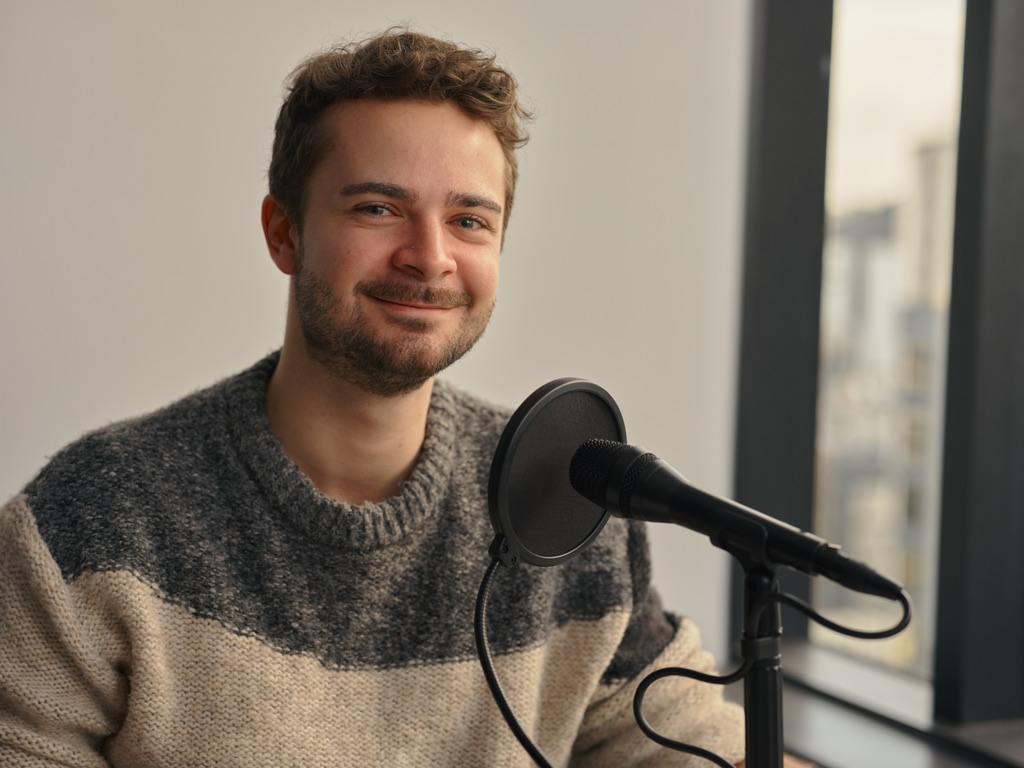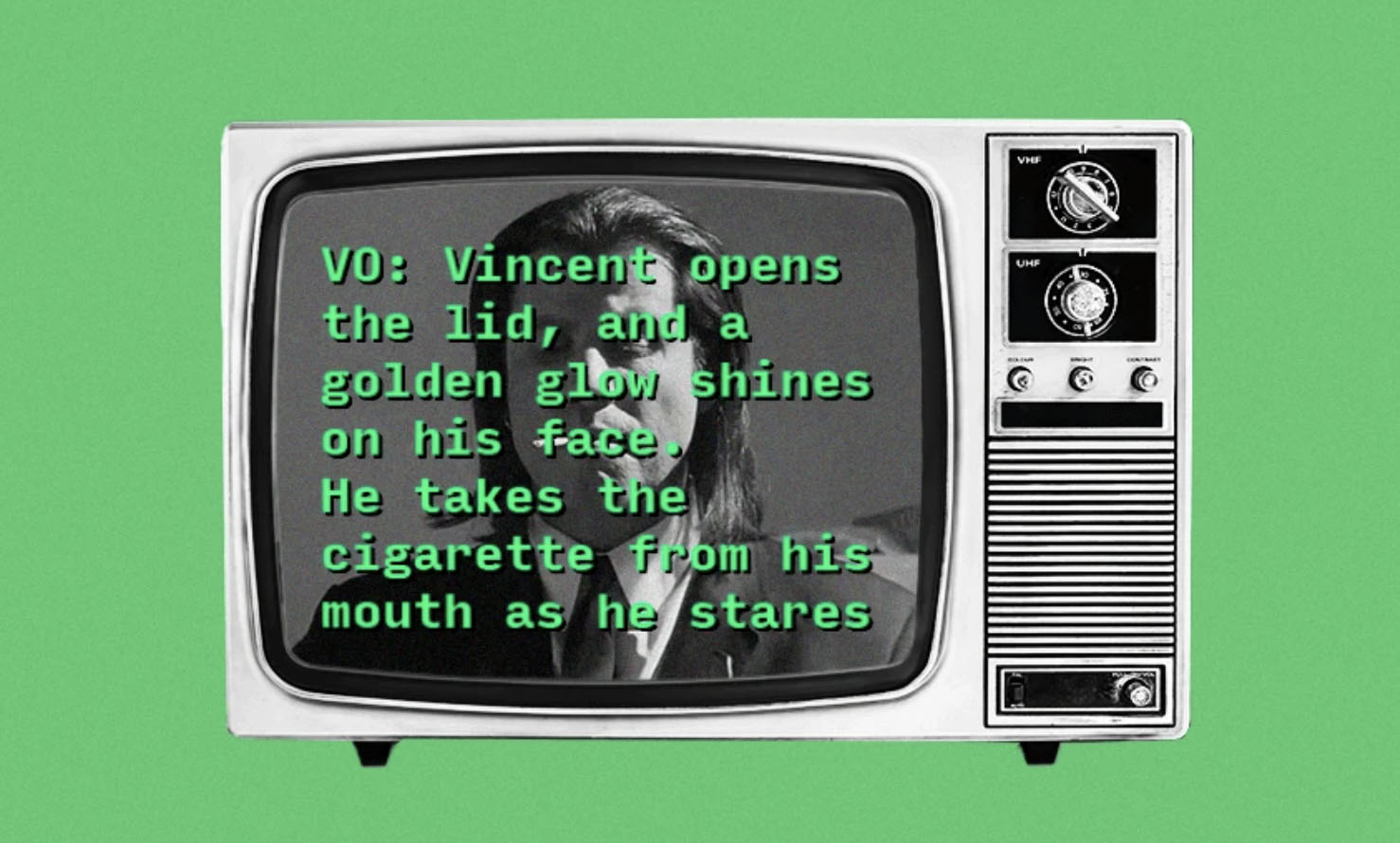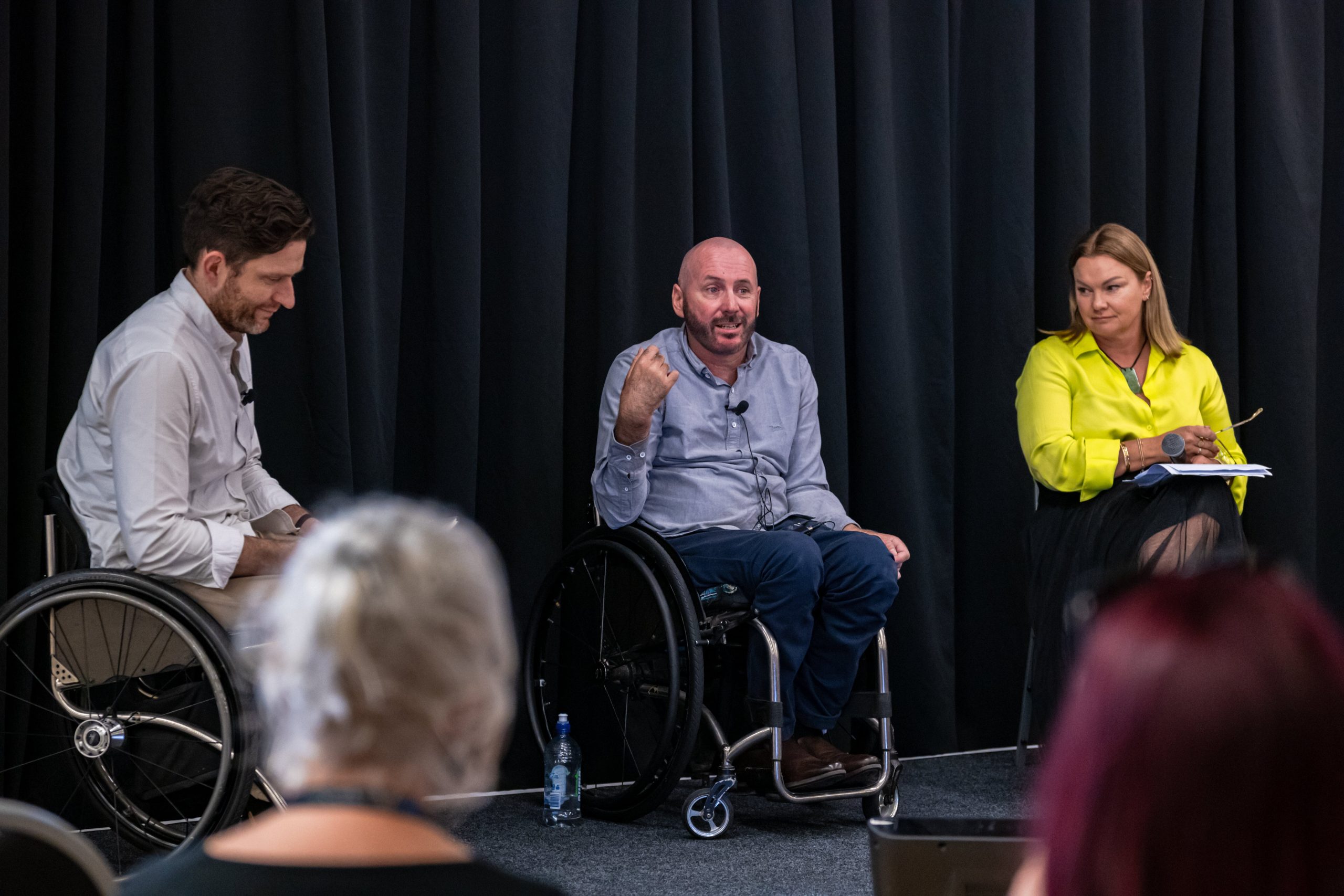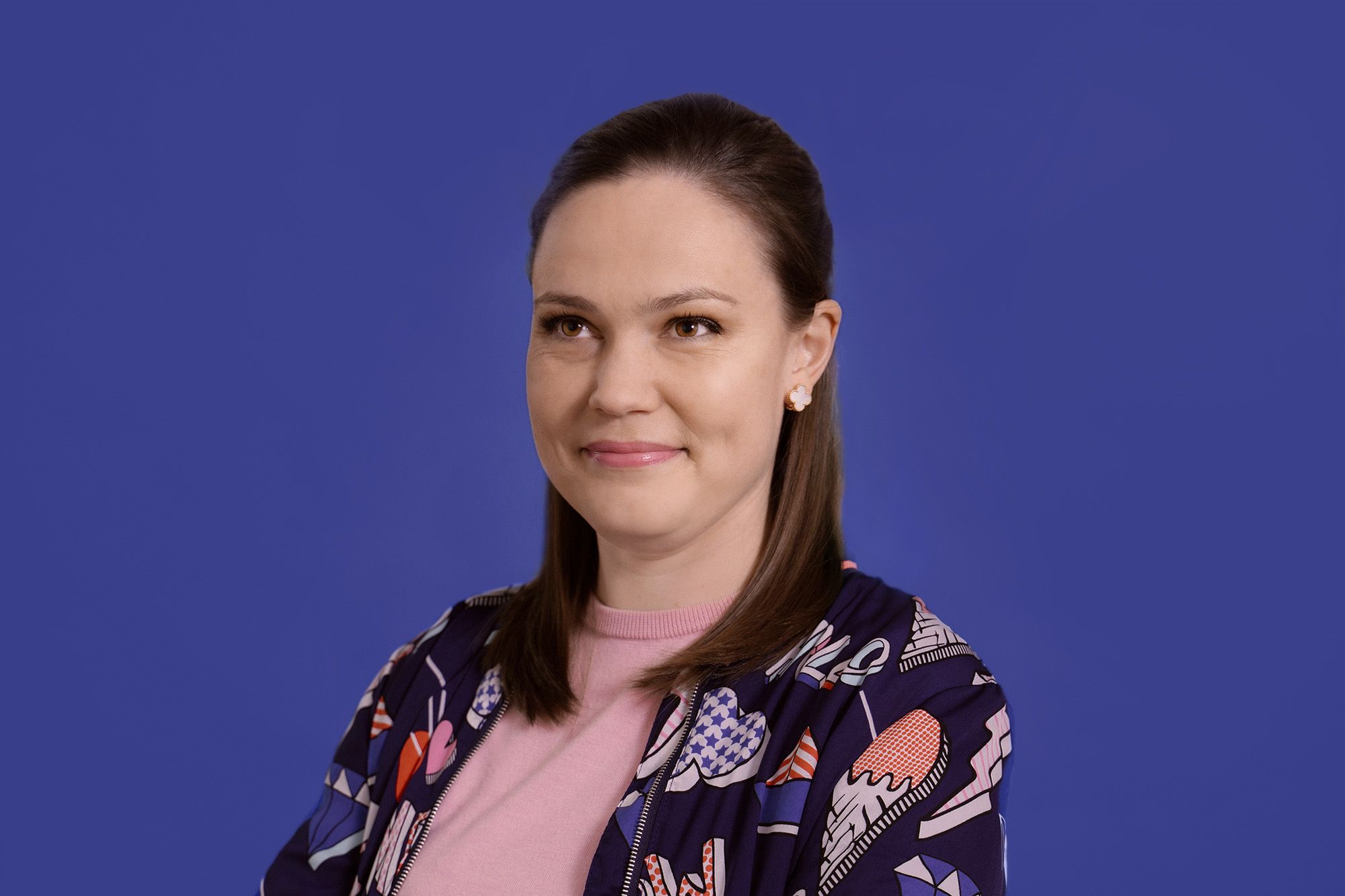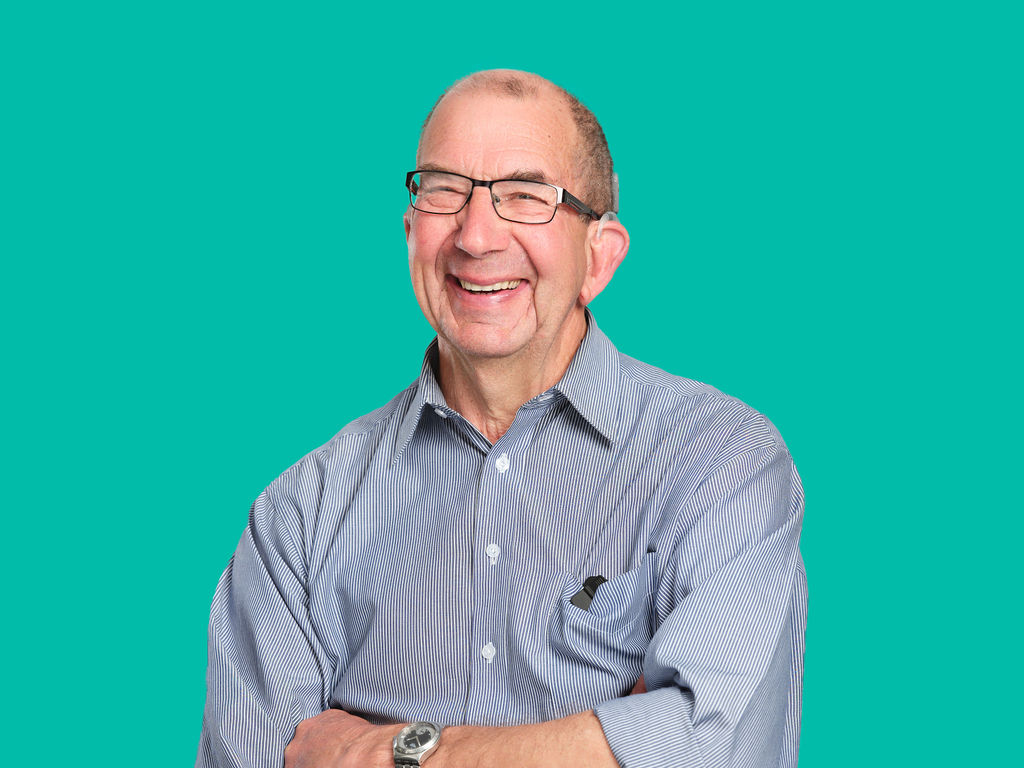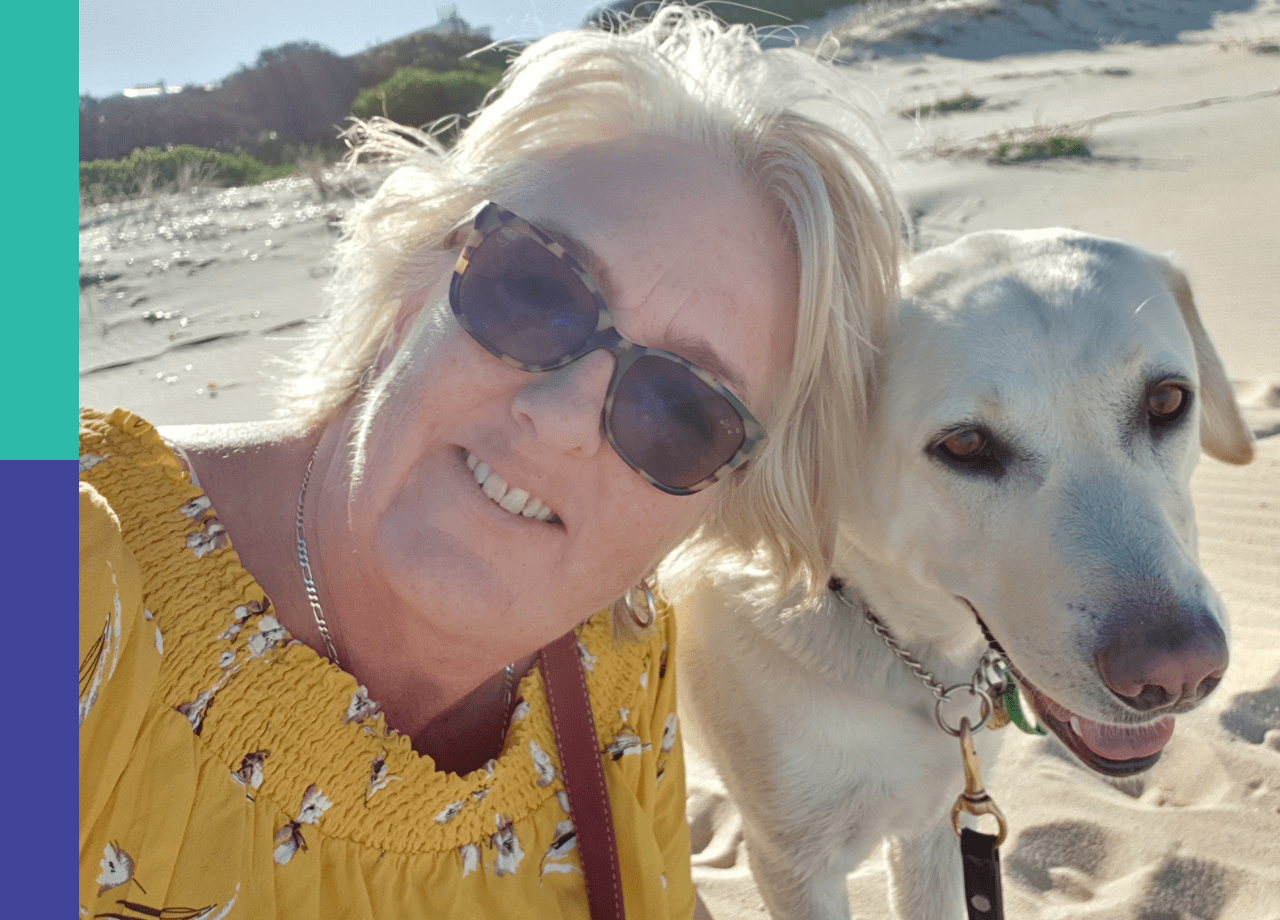
Able communications intern Gabriella sat down for a kōrero with Donna, a social worker in the Wairarapa district who is legally blind and navigates the world with assistance from a guide dog. Their conversation below explores Donna’s experiences, her vision for the future of audio description, and the boundless determination that fuels her journey to live life to the fullest.
Kia ora Donna, can you tell us a bit about yourself?
I’m a social worker, I have been for over 35 years with a degree in Psychology. I run a small business where we have a team of social workers who go out into the community and help vulnerable people and families. I’m a mother of two and a nana of seven. I am also legally blind and have a guide dog called Kenzie.
Does being a social worker and having a disability give you any different perspectives on how you interact with the people you meet and the work that you do?
It’s been interesting. I can’t do home visits now as I find them a challenge, so people come to me instead. But I find now that because of that, I probably work more with people who really want to have support, which has been a lovely change. It’s very different to going into homes and that whole thing of “having to have a social worker in your home” for some people.
I always tell my clients when I first start with them about my disability because it seems to relax them. It’s almost as if they go “oh she’s real, she’ll understand what I’m going through”. I think it gives people a sense of safety. I do a lot of phone counselling and give my little spiel which is similar to what I said at the very beginning of this interview and no matter if it’s over the phone or in person, letting clients know that I’m legally blind and have a guide dog always seems to open up the conversation a bit more. If anything, I think it’s an advantage in some ways.
People can understand that I’ve had some knocks and challenges to deal with so I know what it’s like having barriers to deal with. I’ve found that it’s been a really useful tool for me as some social workers may not have the advantage of lived experience as a disabled person. It’s a tool that I’ve had to use. I’ve had no choice sometimes.
Why is audio description important to you?
It’s my means of accessing the internet, and my friends and family. I don’t use it all the time as I switch back and forth between audio description and watching things like sighted people do, as old habits die hard and I tend to use the remaining sight I do have. Audio description is helpful for me as my eyes get really tired so it’s easier to listen when that does happen.
When you do use audio description, how does it make you feel included? What does the difference between having and not having that option mean for you?
Oh, huge. There’s a huge difference. Because I can’t drive and I live rurally, I feel quite isolated at times. In order to feel connected, I need audio description. If I don’t have it, it’s a double whammy as I’m physically isolated due to living rurally and without audio description for TV, I’m also isolated from what’s happening in society.
I don’t watch a huge amount of TV as I tend to use my phone more often as it’s easier for me to see as I can hold it in my field of vision and also the ease of accessing audio description on it. It’s a fantastic thing to have.
What shows or genres you enjoy watching and why?
I like really light stuff that’s frivolous. My partner always teases me for that! But because I’m a social worker and encounter things that can be quite heavy, I don’t want to come home and watch things that are serious and grim. I try not to watch the news, particularly on the weekend. I like to escape what I come across during the day by watching things like The Kardashians or one of the baking competition shows. A lot of sewing programs like The Great British Sewing Bee. You know, something that’s a little bit fairytale, fun and a bit out there with some competition. And Coronation Street!
What do you hope for the future of audio description in media?
I’d like to see it available to everyone and everything. Something that’s normal and people can access – it doesn’t just have to be for people who are blind. For example, people who may have a cognitive issue and need audio description to help them understand what is happening on screen, or a sighted person who’s busy cooking and wants to keep watching TV and not keep looking up and down. If more people knew about it or had access to it, it would benefit them and be more normalised.
I totally agree. These next questions are more to get to know you as a person. What are some things you enjoy doing in your own time?
I’m into crafting and sewing, and a very avid knitter. I even have my own podcast about knitting. Because I have just a tiny circle of sight left, probably about the size of the palm of my hand, I can use that sight for knitting. And I’ve been doing it for so long I can do a lot of it through feeling and muscle memory.
I used to walk a lot but stopped as my vision has decreased, I feel that everything I do is slightly harder. Alongside that, I’ve experienced more fatigue due to the extra effort of doing things. That’s probably one of the toughest things, the fatigue. But in saying all of that, I try to live life as normally as I possibly can.
I’ve made a list of “60 challenges in my 60s” as I’m now 60 years old. I really want to push myself and get myself out of my comfort zone. I think the main reason for that is I’ve got children and nieces and nephews who have inherited the same condition I have. And my granddaughter is deaf.
I’ve always been an out-there and active person but as my condition progressed, I did find things becoming more challenging. I really want all of my family to see that life goes on. You can lead a rich life even with this condition. A lot of my motivation is around showing them that it’s ok and still fine to get out there and do things when the condition eventually catches up with them.
